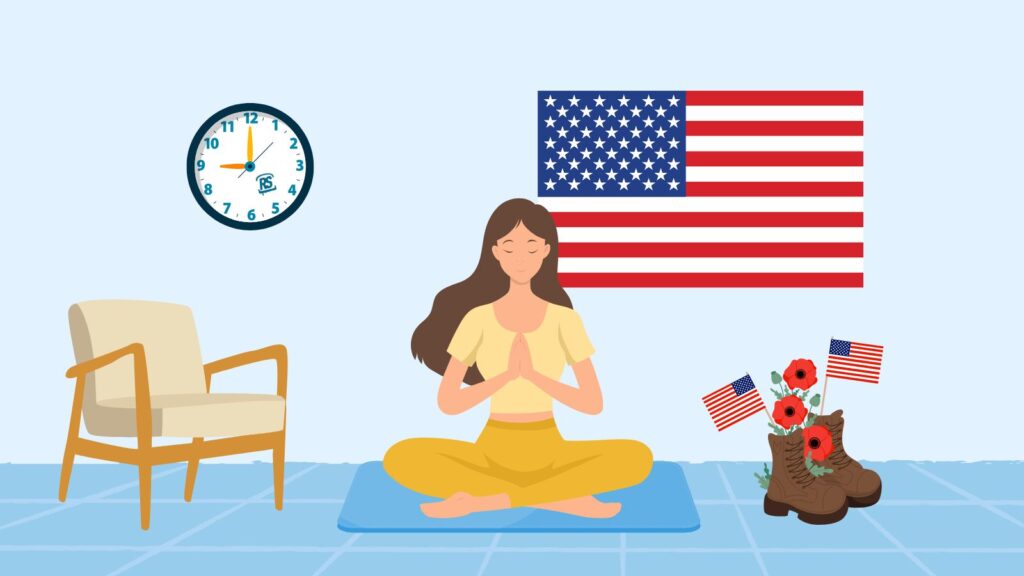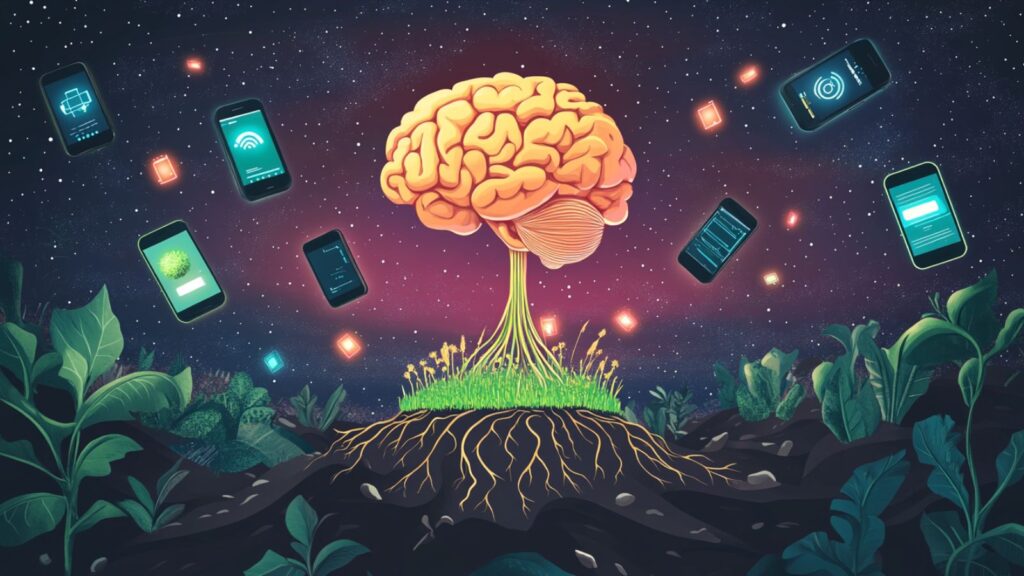Like attracts like. You get what you give. You create your own reality.
We’ve all heard these kinds of spiritual aphorisms, and certainly there is some truth to them some of the time. And yet sometimes they are completely wrong. Let me explain…
The Law of Attraction and The Internet
On the surface, many internet technologies seem to be a great example of “The Law of Attraction.” Search in Google for flights to Costa Rica and within minutes you’ll see ads on completely different sites for travel deals in Costa Rica. These ads are served up from Google and are called remarketing. Yes, they are creepy as hell, and yes, they are highly effective too.
Buy a book on Amazon in a particular genre and Amazon will recommend more books from that genre. Watch a movie on Netflix and give it 5 stars and Netflix will recommend more, similar movies. Facebook works this way too: like and comment on a bunch of posts from a particular person and you’ll see more from them in your news feed due to their secret algorithm called “EdgeRank”.
Your Google search results also work like this. The more people link to a site, the higher it ranks in Google overall, especially if linked from other sites which have a lot of quality links (what’s called PageRank or PR). But also now with Google+ integration into Google search, your search results are personalized based on the people in your Google+ circles, as well as sites you’ve visited before, what country you live in, and on and on.
Eli Pariser calls this phenomenon “the filter bubble.” The more we click like, the more sites we go to, the more videos we watch, the more we connect online, the more our own views are reinforced.
We can be trapped in filter bubbles of various kinds, in an echo chamber of political views for instance, where dissenting voices are increasingly unfriended, blocked, or otherwise silently fade away, no longer presented to our eyes and ears for consideration. Marginalized groups can become more marginalized, tucked away safely in a subculture far from mainstream influence. Similarly, so can conspiracy theories be continually reinforced, or cults bolstered in their faith. Filter bubbles can create communities, but they can also make them overly insular.
I read the other day that almost a third of conservatives “don’t believe” in the unifying principle of biology, that of biological evolution by natural selection. This sort of insanity is made possible by the filter bubble. These conservatives, mostly evangelical Christians, would like to create their own reality, ironically one where God created our own reality in the same essential form it is today — static, unchanged, consistent with the “literal interpretation” of a metaphorical origin myth.
At times I’ve experienced this filter bubble as being trapped by my past preferences, values, and beliefs. Last year I was into X, but now I’m into Y. A thinking person, a spiritual person, a person of growth should be changing their mind about things regularly. It’s a sign of rationality, of a deep and humble respect for the vastness of the Universe to change one’s mind, to update one’s values in response to facts and dialogue with others.
I aspire to watch deep, thoughtful movies on Netflix, but since I mostly watched scifi television shows, Netflix keeps recommending that I watch what I liked in the past. Amazon keeps recommend I purchase a scary looking knife because for a period in my life several years ago I felt afraid of the world and wanted to fight back.
In this way, whether or not there is a “Law of Attraction” operating in the Universe in general (I am skeptical), there is certainly one operating on the internet, and for the most part it is an agent of stagnation and conservatism.
If like attracts like in my choices online, then I must consciously choose novelty and aim to break out of the filter bubble, despite the forces which make it easy to rest in my political echo chamber and the comfortable prison of my past preferences.
How Google Tried to Make Youtube More Positive…and Failed
Quite a few people make a living creating YouTube videos, often in very niche communities like specific video games, comedy, bodyweight exercise videos, or software tutorials. These people succeed in part because they create communities around their excellent content, responding to questions and interacting with other YouTube channels.
On the other hand, YouTube is notorious for having one of the worst comment sections on the web, perhaps second only to 4Chan for trolling and hate. Recently Google combined YouTube with Google+, making all YouTube videos uploaded automatically post to Google+ as well. Another change which occurred from this integration was that all YouTube comments now post to Google+.
Google’s intentions with this change was to improve the commenting system, which theoretically should help people who make a living from their YouTube channels. They wanted the best, most positive and valuable comments to rise to the top, and so they programmed the comments that got the most thumbs up and replies to be posted first.
Unfortunately, these changes completely backfired. A trolling commenter just has to post an insanely inflammatory comment on a popular video to get many replies, thus making it the most valuable comment according to the new system. There is now no character limit for comments like there used to be on YouTube, theoretically allowing for much deeper discussion. Instead, it’s lead to people (probably young males) posting ASCII art of penises, posting the entire text of the script to Star Wars, and other absurd abuses of the system. The new comments also allow links to be posted, which has lead to trolls posting deceptive links to viruses, porn, and deliberately offensive and disturbing images.
As a result, many major YouTube stars have disabled comments on their videos. The new comment system attempted to reduce the amount of comment spam, but now Google admits it increased spam.
Some of these changes were intended to create more of a filter bubble (from the previous PC mag link):
Earlier this month, the popular video-sharing site rolled out an update to YouTube comments that helps to promote “comments you care about,” like those from a video’s creator, popular personalities, or people in viewers’ Google+ Circles. New tools also make it easier to review comments before they’re posted, block certain words, or set auto-approval for specific users.
By signing into Google+ on YouTube, users can decide whether to leave public comments, or write to only those people in their Circles. As in Gmail, replies are threaded for easy conversation flow.
While personalization certainly has perks, such as choosing to communicate only with family and friends and not the entire internet when posting a comment on a YouTube video, the dark side of personalization is an ever-stronger filter bubble, immune to fresh ideas, creativity, or minority opinions.
Google is staffed by some of the best and brightest engineers in the world. Yes they are a business, but I do think they sincerely thought that by integrating with Google+ they would improve the comments on YouTube, not make them worse. They are also providing this amazing service for free! Talk about generosity. “The Law of Attraction” would state that good intentions lead to good things, but then again the road to Hell is paved with good intentions.
The Hugging Saint is also the Slapping Saint
Speaking of good intentions going somewhere bad…have you ever heard of this hugging guru named Amma? For hours and hours she hugs people who come to see her, beaming with love and joy and all things good and holy. And then in private she’s a whiny, needy, entitled bitch who slaps people and has sex with students while preaching the need for abstinence amongst her followers. Or at least that’s the story from her ex-right-hand-woman Gail Tredwell in her recently published memoir, Holy Hell: A Memoir of Faith, Devotion, and Pure Madness. Amma’s followers have subsequently been trying to smear Tredwell through a PR campaign of disinformation and denial.
I think this is an interesting case for “The Law of Attraction.” In fact, we might look to attraction in electromagnetism for a good metaphor. In magnets, the positive pole attracts the negative pole. Positive forces repel other positive forces. In human psychology and spirituality I suspect something similar is at play. The more one cultivates Love and Light, typically the more then they also experience Hate and Darkness. Barbara Ehrenreich calls this ideological positivity in her excellent book Bright Sided: How Positive Thinking is Undermining America, and I call it aggressive positivity because this kind of positive mood requires a kind of self-aggression towards parts of ourselves that we don’t like.
When Amma hugs people she no doubt is radiating with love and joy for them, but all that love is inhumanly unnatural, totally unsustainable. Infomercial self-help guru Tony Robbins had an ever-present toothy smile (which he changed to a closed-mouth smile sometime in the 90s) supported only by his aggression towards any part of himself or anyone else who gets in the way of his goals.
Amma certainly has participated in creating her own reality, but precisely because of her focus on Love and Light she has amplified her own Evil and Darkness. Only through the alchemical transmutation of the darkness can we become whole, but that doesn’t necessarily sell as well to the unenlightened disciple as does Big Love.
If we only seek out what we like, we may get more of it, but that can trap us in a suffocating filter bubble, a comfortable prison, a myopic reality tunnel. Our good intentions often backfire and reinforce that which we don’t want to have happen, so we must remain open and responsive to feedback. And only by welcoming and getting to know our demons better can we experience wholeness without a kind of iatrogenesis or negative side-effects.
Thanks for reading! Please add your comments below. Also, if you liked this article, you may also like my project Scientific Goals as well as my other services. You might also enjoy some of my old articles on the group blog Beyond Growth.














